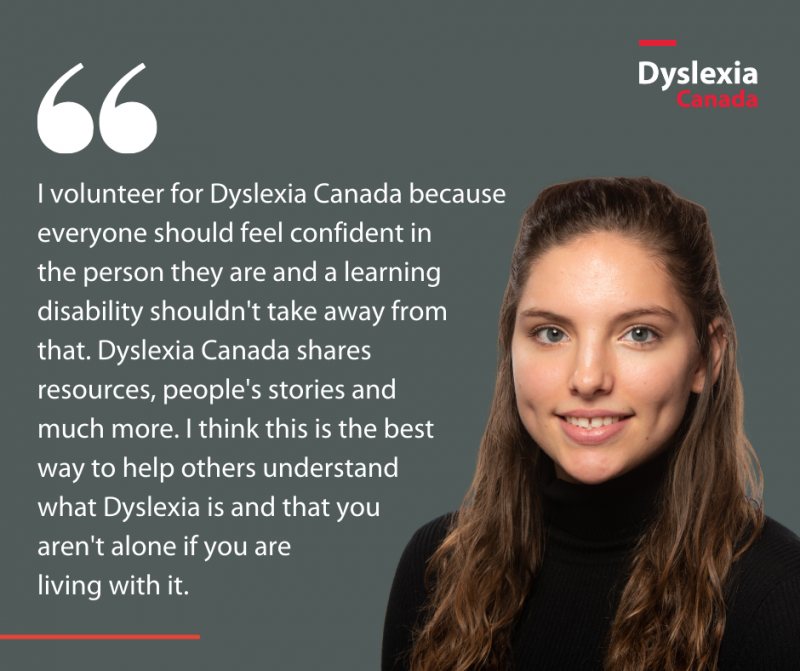Learning Disability – No Match for Hard Work
 From a young age, Maggie Berk knew she was learning differently than her classmates. Maggie grew up in a small community in rural Cape Breton with a little more than 20 students in the entire school, and there were only three in her class. Maggie did require extra help in the classroom throughout her education, but with determination and a strong work ethic, Maggie persevered. Soon she will be working toward teaching future students.
From a young age, Maggie Berk knew she was learning differently than her classmates. Maggie grew up in a small community in rural Cape Breton with a little more than 20 students in the entire school, and there were only three in her class. Maggie did require extra help in the classroom throughout her education, but with determination and a strong work ethic, Maggie persevered. Soon she will be working toward teaching future students.
Maggie was first officially diagnosed with dyslexia in grade one. With the correct guidance from her mother, teachers and resource supports throughout her schooling, she graduated from CBU’s Bachelor of Arts in Community Studies, with a major in Communication on the Dean’s List and has already started the Bachelor of Education program at CBU.
Dyslexia is a specific learning disability characterized by difficulties with accurate and fluent word recognition and poor spelling and decoding abilities. Secondary consequences may include problems in reading comprehension and reduced reading experience.
“Yes, it was difficult being the student who learns a little differently from my peers, but from a very early age, I discovered lots of tips and tricks to manage my learning disability,” says Maggie. “I could have easily become discouraged many times, but I truly love learning and found what worked for me.”
 “The symbol you see here is the symbol for dyslexia. It is meant to represent a mix of a qp and a db, the most common letters for people with dyslexia to mix up. These are letters I have struggled with myself. I have tattooed this symbol on my wrist because for a very long time, I thought having dyslexia was something I needed to hide from the world, that people would think I was stupid if they knew. Now, I think of this tattoo on my wrist, and it’s like wearing my heart on my sleeve. I have grown to realize that dyslexia isn’t holding me back from the things I want to accomplish in life and that I can’t let fear hold me back either.”
“The symbol you see here is the symbol for dyslexia. It is meant to represent a mix of a qp and a db, the most common letters for people with dyslexia to mix up. These are letters I have struggled with myself. I have tattooed this symbol on my wrist because for a very long time, I thought having dyslexia was something I needed to hide from the world, that people would think I was stupid if they knew. Now, I think of this tattoo on my wrist, and it’s like wearing my heart on my sleeve. I have grown to realize that dyslexia isn’t holding me back from the things I want to accomplish in life and that I can’t let fear hold me back either.”
During her time at CBU, Maggie has relied on the services and supports offered through the Jennifer Keeping Centre for Accessible Learning, located on campus. The Jennifer Keeping Centre provides a variety of accommodations based on students’ disabilities and is a resource for students to get the most out of their educational experience.
During her studies in the BACS program, Maggie developed a website on dyslexia for her community-focused project. Dyslexia Canada has recognized Maggie’s work and research. This website is meant to be a place of support for those with dyslexia, as well as a resource for those who want to learn more about this learning disability and to help combat any stigmas and misconceptions. You can check her website out here.